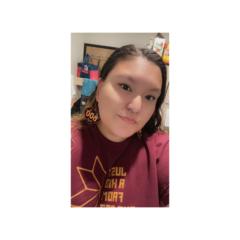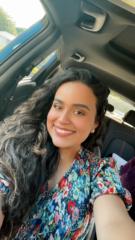Activity
Mon
Wed
Fri
Sun
Oct
Nov
Dec
Jan
Feb
Mar
Apr
May
Jun
Jul
Aug
Sep
What is this?
Less
More
Owned by Marilyn
🧪🔬Helping Students Effectively Study For & Pass The ASCP Exam
🩸🔬📚 Helping Effectively Study For and PASS The ASCP Exam
Memberships
43 contributions to Microscope Views (FREE)
Chemistry Made A LOT Easier and Digestible😋🧪⚗️
Greetings my Little Gang of Nasties 😈😜 Let’s talk about one of the most intimidating sections on the ASCP exam: Chemistry. Well…. I mean all of them are intimidating LMAO! The good news? If you break it down into 4 major content areas and attack them piece by piece, it becomes SIGNIFICANTLY more manageable. Before you begin studying ASCP questions, you should know that each sections tests for Biochemical Theory and Physiology, Test Procedures, Result Correlations and Disease Correlations: 🧪What *exactly* is BIOCHEMICAL THEORY? This is the science behind the molecules you’re testing: - The chemical structure and function of carbohydrates, lipids, proteins, and nucleic acids. - The pathways they move through (e.g., glycolysis, lipid metabolism, protein catabolism). - The reactions enzymes catalyze and how those reactions are measured in the lab. - How different compounds (like bilirubin, cholesterol, glucose) behave in the body and in assays. 👉🏽Basically: “What is this molecule, what does it do, and what happens chemically when we measure it?” 📚 Why this is SUPER HIGH YIELD AND IMPORTANT for the ASCP The ASCP doesn’t just want you to memorize test names. They want you to connect the dots: - Biochemical theory = how the test works (the principle behind the method). - Physiology = why we’re testing it (what’s happening in the patient’s body). - Together = interpret results in the context of disease. For example: - Glucose: Biochemical theory = measured via glucose oxidase method. Physiology = regulated by insulin/glucagon. In diabetes, failure of regulation = high glucose. - AST/ALT: Biochemical theory = enzymatic activity measured with substrate assays. Physiology = normally found inside liver cells. In hepatitis, cells die → enzymes leak into blood. 👉🏽 So when you see “biochemical theory and physiology” on a content outline, read it as: “Understand both how the test works chemically AND why it matters biologically.” 🧪What *exactly* is PHYSIOLOGY?
Labce question
Hi! I was wondering what we should be scoring in the labce simulator?
AAB Test (Dec 10th) Tips
Hi everyone! Not sure if I’m allowed to post this or if you guys even have any tips. I’m currently in an MLT program in FL. I start clinicals in Jan and we were actually offered to be able to take the AAB (Dec 10th) before even graduating aside from taking our ASCP exam once graduated. Any good tips or study material that can help with the AAB? I know some states don’t even take it into account but here in FL they do so I figured I might as well take advantage! Thank you in advance!!
1 like • 17h
HEYYYY @Gelmarie Martinez Great question. So they say that the AAB is significantly less difficult than the ASCP. In my opinion, if you invest in MediaLab/LabCE Exam Simulator, and you’re doing practice questions from there, you will be OVER prepared for the AAB. You can also do a full length AAB practice exam on MediaLab/LabCE!!
You’re At The Finish Line, But Want To Give Up? Oh HECK NO.
Greetings my Little Gang of Nasties 😈😜 I want you to really sit with this for a moment: many, if not all of you are literally at the finish line with this exam. This test could be the difference between: - Keeping your job or losing it - Supporting your children or giving them a better life - Carrying the stress of uncertainty or finally exhaling when you see that PASS at the end of the screen I know this is A LOT of material. I know it feels impossible some days. You’re studying while juggling kids, spouses, jobs, and all the other ways life is lifing. And I see you and understand you more than you know. When I was going through school, I worked full-time. I didn’t have the easiest upbringing. But somehow, someway, I kept pushing because I knew the end goal was bigger than the struggle in front of me. And I want you to remember that for yourself: the end goal is bigger. That certification: MLS(ASCP) or MLT(ASCP), is your door to security, opportunity, and pride in knowing you did not quit. For those of you who are spiritual or religious, lean on your faith. Trust in God. Trust in the work you’re putting in. Because when you put faith and action together, doors open. So… DO NOT stop now. Don’t give up when you’re this close. The finish line is waiting for you and I promise, it will all be worth it. If you’re tired of feeling stuck and you’re ready to finally get the support you need… to break down practice questions, understand the exact study strategy, and PASS the ASCP once and for all… join us inside the Inner Circle of Microscope Views today. https://www.skool.com/microscopeviews/about?ref=badbb26c40a147eea94634972a25414a This is your time. Let’s get it. Marilyn 🧪👩🏽🔬
Microbiology Study Tip: Breakdown Bacteriology, Mycology & Parasitology
Greetings My Little Gang of Nasties! @Tyneatrious King Posed a great question in the group. Since Microbiology is a huge subject, and the smartest way to study is to break it into major categories and then master the distinguishing features of each. Here’s how I’d suggest you prepare on top of utilizing using MediaLab/LabCE or the ASCP BOC Exam Simulator questions to reinforce the theory: 🦠🧫🧪 BACTERIOLOGY Focus Areas: - Gram-positive vs Gram-negative (cell wall structure, staining, antibiotic susceptibility) - Morphology (cocci vs. bacilli) - Biochemical reactions (Catalase, coagulase, oxidase, TSI, etc.) - Pathogenic mechanisms (toxins, virulence factors) - Clinically important bacteria (Staphylococcus, Streptococcus, Enterobacteriaceae, Non-Fermentative Bacilli, Mycobacteria, etc.) Study Tips: - Master the Gram stain flow chart. - Learn “differentiating tests:” the one test that separates similar bugs (e.g., catalase for Staph vs Strep, coagulase for S. aureus vs coagulase negative staph). - Practice with TSI and other biochemical slants until interpretation is second nature. 🍄 🍄🟫🥐🥖🍞 MYCOLOGY Focus Areas: - Yeasts vs molds vs dimorphic fungi - Microscopic morphology (hyphae, spores, budding patterns) - Fungal culture characteristics (agars, colors, specific characteristics on the plate) - Clinically relevant fungi (Candida, Cryptococcus, Aspergillus, Histoplasma, Blastomyces, Coccidioides, etc.) - Stains (India ink, KOH prep, silver stain) Study Tips: - Compare systemic dimorphic fungi side-by-side (location, morphology, diseases). - Use flashcards with images of fungal structures, the ASCP is often image-heavy! - Group fungi by disease type: superficial (tinea), subcutaneous (sporotrichosis), systemic (Histoplasma), opportunistic (Candida, Aspergillus). 🦟🪲🪳🕷️ PARASITOLOGY Focus Areas: - Protozoa vs helminths - Life cycles (hosts, vectors, transmission)*** INCREDIBLY IMPORTANT - Common parasites and their disease states (Giardia, Plasmodium, Toxoplasma, Entamoeba, Ascaris, Strongyloides, Schistosoma, etc.) - Lab ID (ova, trophozoites, cysts in stool; blood smears for malaria; serology - Again, ASCP is IMAGE HEAVY)
1-10 of 43
@marilynthescientist
I help students effectively study for and pass the ASCP exam on the first attempt. Clinical Laboratory Scientist | Educator
Active 2h ago
Joined Jun 24, 2025
California
Powered by



